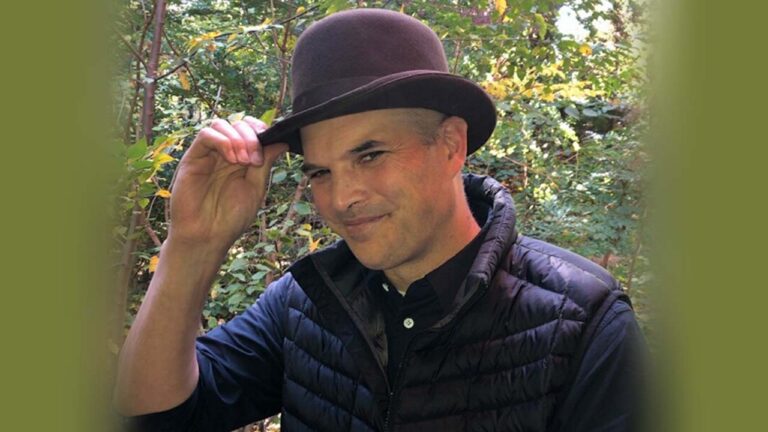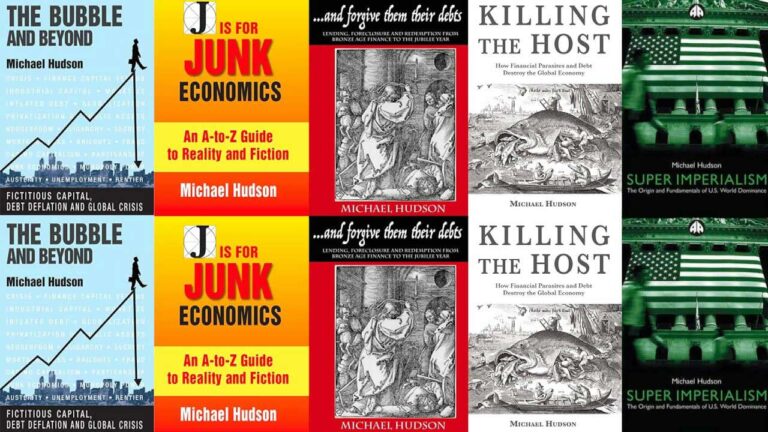This interview was originally published on June 6, 2011. Lawrence Wilkerson, Collin Powell’s former Chief of Staff, reflects on his life journey from “cold warrior” to harsh critic of US foreign policy.
Reality Asserts Itself with Lawrence Wilkerson (2011)
PAUL JAY, SENIOR EDITOR, TRNN: Welcome to The Real News Network. I’m Paul Jay in Washington. And we pick up our series of interviews with Larry Wilkerson. Thanks again for joining us.
LAWRENCE WILKERSON, FMR. CHIEF OF STAFF TO COLIN POWELL: Sure.
JAY: So in ’93, Colin Powell retires and you go back to teaching. So pick up the story.
WILKERSON: Let me just back up a little bit and say that the first Gulf War, which of course was Powell’s first we’re going to cut it off and then we’re going to kill it with regard to the Iraqi army, opened my eyes to a certain extent about the Middle East and about the Strait of Hormuz and the Persian Gulf and about Saudi Arabia and others. The reason we fought that war was not to uphold UN mandates. It was not to prove that the new world order was going to be established well by George Herbert Walker Bush. It was to protect oil. The reason we put forces down in the desert early was to keep Saddam Hussein from turning right and going into Saudi Arabia. We knew if he did, his tanks would roll over the 82nd Airborne Division we’d put on the ground, but his tanks would be rolling over US soldiers, and that would be cassus belli for sure. So my eyes began to be opened even more in this pragmatic way as to why the United States was using force in the world these days. In this case it was all about oil. Of course, that would come back again in 2003 when we re-invaded Iraq and threw out all kinds of aspersions for reasons to the contrary, but we still were going back to oil, basically. So this is a continuity, if you will, that gets established in terms of abusing me of my naivete, what little was left, as to why the United States in the post-World War II period uses force so often.
JAY: Now, before we pick up the line of the narrative, let’s just go back to one thing. You grew up in a family that voted Republican. When you became of age to vote, you voted Republican. You had a certain loyalty to the party. As you’re getting to this stage and as you’re talking about the reasons for this first Gulf War, what’s your thinking in terms of politics and the Republican Party?
WILKERSON: The Republicans had always been, at least according to my father, and certainly my belief, too, had always been for individualism, for hard work, for rising because of your own talents and skills, for merit, for a country full of individualists who could do whatever they wanted to do. They could be bums, or they could be president of Sears and Roebuck. That was what my father used to say. And he got real close to being–.
JAY: All a matter of choice.
WILKERSON: Yeah. And he got real close to being president of Sears and Roebuck: vice president. So I guess I’d have to say at the same time that I was being disabused of my naivete with regard to the Armed Forces and what the country used them for, I was also being disabused of my naivete about the Republican Party. Not to say that it hasn’t transmogrified in those years. It has. It’s not nearly what it was. My icon in that would be Dwight Eisenhower. Dwight Eisenhower–. And here again you had a man who merged both worlds, the ultimate military responsibility with the ultimate civilian responsibility. We don’t get those kind of people very often. Now, here’s a man who knew both worlds in a sense that he knew the bad and the good from both worlds. He once said, according to his granddaughter Susan Eisenhower, God help the United States if anybody ever sits in the Oval Office who doesn’t understand the military the way I do. This is a man who understood what was happening to post-World War America, that it was turning into a military-industrial-congressional-dominated national security state. And the Republicans have cheered that transmogrification–cheered it. Indeed, they’ve gained their power, their political power, from helping it, from moving it in the right direction when it needs to be moved, so that now you have guys like Mitch McConnell and Darrell Issa and Eric Cantor from Virginia, my state.
JAY: And Kyl.
WILKERSON: And Kyl. They live, breathe, drink, and sleep the military-industrial complex. They love war, they love this business, because it keeps them in power.
JAY: Now, where were you–what was your thinking during Reagan’s days? Here’s the ultimate cold warrior, the ultimate deregulator, and started making major moves in terms of the US economy, weakening union rights, and other kinds of things. At the time of Reagan, do you share his vision of the world?
WILKERSON: I think it’s fair to say that–I voted for Ronald Reagan both times. I think it’s fair to say that I shared his vision from the perspective of what I’ve just described about the old Republican Party–rugged individualism, achieving on your own hard work and your own merits and your own skill. It wasn’t that I was a social–as Colin Powell once said, I guess I’m a Republican for national security policy, foreign policy, and I’m a Democrat for social policy. It wasn’t that I wasn’t from time to time a Democrat for social policy, that I didn’t see that there were a need for government programs, there was a need for things to help poor people, to help people get a leg up, and so forth. I certainly did see that. But I saw Reagan as coming after the Vietnam malaise, if you will, and particularly after the immediate problem with the Carter presidency and the 444 days with our hostages in Iran and so forth and sort of resurrecting the country. It was only later when I began as an academic to study his presidential decision-making that I began to understand that he probably of all the presidents was the one who started the most accelerated movement away from what were the traditional political and cultural values of America, especially economically, but at the same time masquerading it as or covering it, camouflaging it as a return to the shining city on the hill and a return to previous values and so forth, which it was anything but. I mean, just eliminating the regulation that he eliminated, leading to what Clinton did in his eight years, where Bob Rubin was his most important player and his most powerful player, both as secretary of the Treasury and head of the National Economic Council, we essentially emasculated all the things that had been put in place prewar and postwar in order to protect us from what I call predatory capitalism or the kind of capitalism that runs amok and produces, as you and I were talking earlier, sociopaths. That’s what we’ve got today, and we’re in a mess because of it. So my view, obviously, of Ronald Reagan is quite different today as an academic studying his decision-making than it was at the time when I voted for him.
JAY: Alright. Take us back. Ninety-three, Colin Powell retires and you go back to teaching. And bring us up from there to when you go back in again.
WILKERSON: Well, I went to the Marine War College and taught there for four years. And we went through the Balkans, we went through Kosovo, we went through the end of Somalia, and so forth. So we got some real insights into–from serving marine and other officers coming into my seminars, the continued use by America of military force. We often commented that we were using the military, the Armed Forces more often in the post-Cold War than we did during the Cold War. And was that all because of the relaxation of there not being a superpower opponent out there? Or was it because the United States really was turning into a national security state that increasingly turned to the only element of its bureaucracy that it seemed to get to work for it, and that was the Armed Forces? I think it was a mixed answer at that time. It’s later, when I joined Powell at the State Department and see Bush-Cheney up close, Rumsfeld up close, that I begin to understand that indeed we have turned into a national security state. We do function for that national security state, for its interest, and the old federal democratic republic is dying. What we have today is not what we thought we would have post-World War II as we tried to design an apparatus to deal with the immense power we’d accumulated as a result of World War II.
JAY: But you don’t come to these conclusions by the end of the ’90s like the way you’re articulating now.
WILKERSON: No, this is a slow–I’m a slow learner. This is a slow-growth process. It takes a very vivid look inside the Cheney-Bush administration to understand that decision-making had taken on a new tone and tint, if you will, with the Bushes, a tone and tint that President Obama has to some extent erased. But the basic structure is still there and the basic reason for operating the way we do is still there. We’re in four wars today. We’re in Afghanistan, we’re in Iraq, we’re in the so-called global war on terror (and don’t believe that’s over; we’re still fighting in certain countries), and we were in Libya. And my God, we could be in Syria tomorrow and Iran next week. This is crazy. This is what we do today. We do war. And increasingly we do it with less than 1 percent of the population, less than 1 percent. This is unconscionable. George Washington would not claim us today.
JAY: Okay. In the next segment of the interview, let’s talk about the day you get a call from Colin Powell. He says, I’m going to be the next secretary of state; come work for me. And please join us for the next segment of our interview on The Real News Network.
Never miss another story
Subscribe to theAnalysis.news – Newsletter
Lawrence Wilkerson is a retired United States Army Colonel and former chief of staff to United States Secretary of State Colin Powell.












